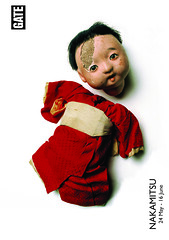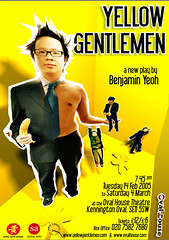Churchill: Drunk Enough to say I love you?
Drunk Enough to Say I love you by Caryl Churchill, directed by James MacDonald
Caryl Churchill is a heroine of mine. She’s genius – whatever genius is meant to be. So, I have to admit that I don’t think I’ve managed to join up all the dots in my thinking or reaction to her new play, Drunk Enough to say I love you.
There’s lots of stagecraft and dramaturgy thoughts, but I can’t as yet resolve the nub of it.
*Spoilers* if you are the type that does not want to know anything about a play before seeing it, then don’t read further yet, I’m not going to detail the whole play but it’s hard to describe some of the themes without revealing some of the theatre behind it.
Two men, one American, Sam, and one British, Jack, speak often in truncated sentences about the atrocities of power. Jack would do anything for Sam. Sam would do anything.
The set is a couch, which steadily rises throughout the play. (This echoes Stephen Daldry’s Machinal with Fiona Shaw, who was also on a raised platform of no escape.)Everything outside the world of the couch appears/vanishes into the darkness (except in certain seats where one can glimpse the hidden). It’s an effective device and supports the sense of isolation (and arrogance?) surrounding the characters.
The language is truncated. This echoes Churchill’s play Blue Kettle in the dual play: Blue Heart (1997). In Blue Kettle words in the dialogue are increasingly replaced by “blue” or “kettle” until the last scene abandons words altogether and the characters communicate by sound alone. Almost a virus in the language. This leaves the audience to have to form an imaginative leap to complete the sentences – perhaps to complete the ideas and images.
However, some of the images are obscure, in my opinion. Perhaps that is the point in raising our awareness. There is also “a detective element” the audience can play. But, should we be rewarded for knowing? I had the sense that when an element was known – there was a “Ha. I get that bit” moment – but it made me feel awkward. Ok, so I know. Will anyone else? Is this a play preaching either to the converted or to those who won’t know, won’t care? I am unsure.
So I knew that neem is a tree in India that supposedly has pharmaceutical properties and the point is Western companies are supposedly trying to patent some of its uses when it has been known as local knowledge for hundreds of tears.
That the juxtaposition of orange grove / Israel refers to Israeli rockets that were meant to hit an orange grove where supposedly Israeli troops saw rockets fired from, but instead hit homes.
That a reference to Afghanistan / goat game / replace human is referring to a Persian “goat dragging” game – bukashi – that was only recently reintroduced into Afghanistan (after the fall of the Taliban) where horse riders compete to grab and control a goat carcass. I’m writing a play involving Afghanistan, so I happen to know.
Will anyone be bothered to find these things out? Is that the point? There must be many more references I didn’t understand.
I’ve grappled with some cousin ideas when I was writing Lost in Peru. Particularly the use of facts and figures to justify acts and the juxtaposition of such statistics to draw up uncomfortable comparisons. However, part of the point is who comes up with the figures and whether they are true / feel true. I do not think I was absolutely convinced. Then again maybe that is the point to try and know what is true or not, when some “body” purportedly claims them.
Many tragedies and atrocities are referred to… some directly, some obliquely often simply by a country’s name. Perhaps the imaginative leap to complete the stories is the point and perhaps it is the glib way the characters discuss the stories that is meant to penetrate to me and maybe there were too many stories I didn’t know.
The US-UK relationship, to some extent was made real by Sam and Jack. That “special relationship” and maybe we are drunk enough to fall into bed with the US and its power politics and the “trickle down” atrocities caused by pursuing its policies.
And perhaps yes, Sam’s greatest need is to be loved “you have to love me me / can’t / love me love me, you have to love me, you “ And that needs is like a country’s need (America?) and so…Jack would do anything for Sam. Sam would do anything.
*
It’s made me think. I’m trying to join up the dots. I still think Churchill is genius. However, I am left a little cold at this very moment – perhaps it will marinade in time – but maybe I’m not drunk enough. Or too drunk.
Still, you ought to go see it and I recommend you do.
At the Royal Court, Until 22 Dec, 020 7565 5000
comments
2 Responses to “Churchill: Drunk Enough to say I love you?”


It’s definitely on my list of things to see. This is a really great reaction to the play Ben, makes me want to go all the more. If I do go I’ll probably end up posting something about it too. Hope all is well your end.
‘Drunk Enough to Say I Love You’ is for me, an oblique and difficult play. I am sure, that with much patience and scrutiny, we can examine the text after the event and attempt to more fully interpret what we failed to adequately appreciate in the theatre. But a play is for the theatre and it either succeeds or fails in the theatre. Post-play analysis with the aid of the text is helpful but it is after the event.
It is disappointing that in dealing with a matter of such import as the Anglo-American relationship in the pre and post 9/11 world, Churchill decides to tantalise us with half-sentences and phrases. I have no objection to playwrights ‘making the audience work’, but Chuchill seems to want to remain in our heads for many weeks after we have seen the play, not in a positive way, but for us to decode her labyrinth of truncated babble. I felt it was unnecessary for the truncated style to continue as long as it did. A few lines would have established Churchill’s intentions. In the beginning of Mamet’s ‘Oleanna’, for instance, there is much ‘disruption’ of dialogue, but this is not extensive. Churchill has decided to be oblique when I feel she could have been more generous to her audience (with no cost to her drama) as she has demonstrated in other plays. A disappointment.